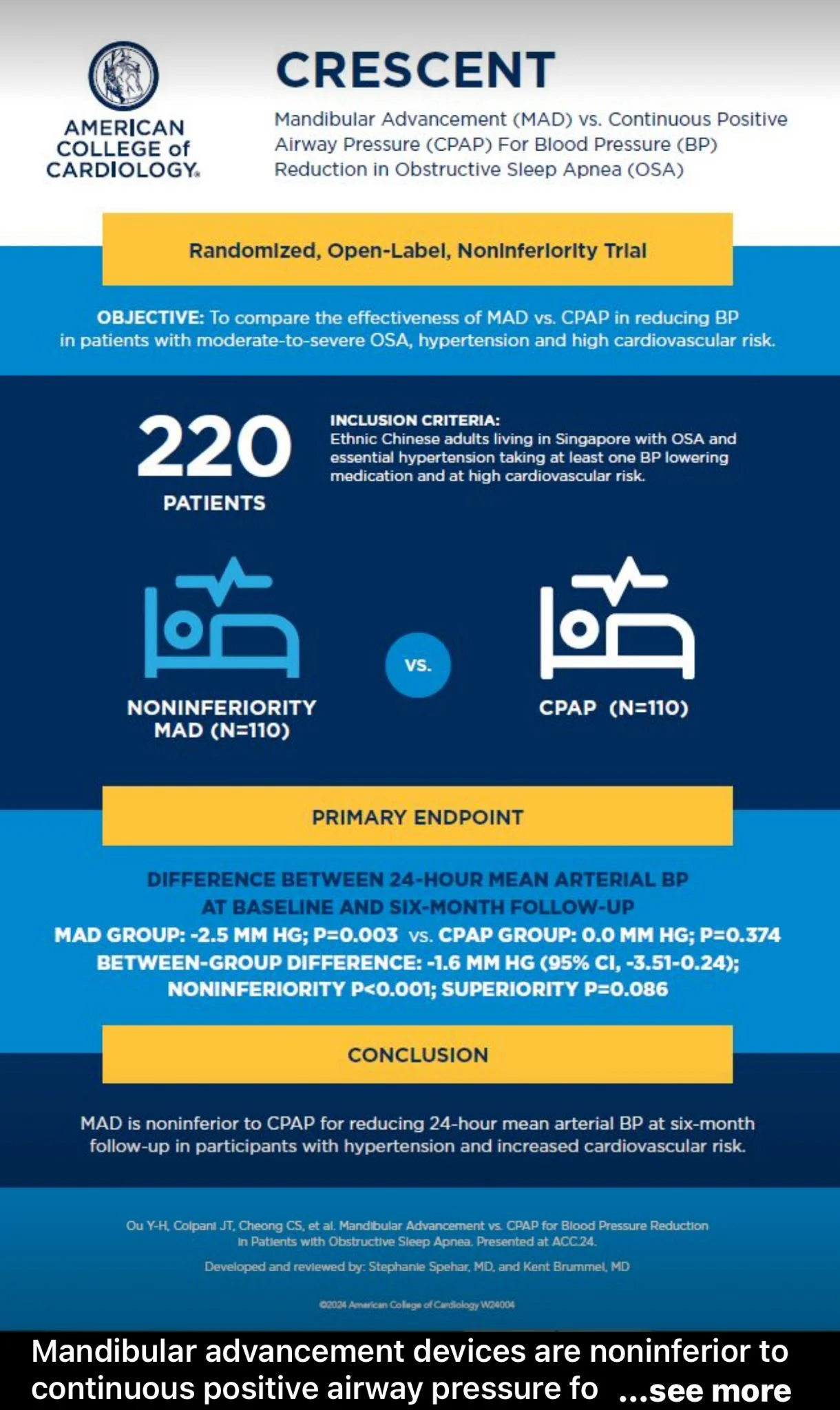
Mandibular advancement devices (MAD) are noninferior to continuous positive airway pressure (CPAP) for lowering mean arterial blood pressure (MABP) in patients with moderate-to-severe obstructive sleep apnea (OSA), according to results from the CRESCENT trial presented during a Featured Clinical Research session at ACC.24 and simultaneously published in JACC.
The noninferiority trial, conducted from October 2019 to December 2022 at three public hospitals in Singapore, randomized 220 participants (≥40 years, median age 61.0 years, 85.5% men, 100% Asian) with moderate-to-severe OSA plus hypertension to either an MAD or CPAP device and followed them for six months. At baseline and six-month follow-up, they underwent 24-hour ambulatory BP monitoring, an Epworth Sleepiness Scale questionnaire survey and blood tests for cardiovascular biomarkers.
The primary endpoint of change in 24-hour MABP from baseline at six months decreased by 2.5 mm Hg (p=0.003) in the MAD group, compared to no significant change in the CPAP group. The between-group in 24-hour MABP change at six months was –1.6 mm Hg (95% CI, –3.51-0.24; noninferiority p<0.001). The MAD group also demonstrated a larger between-group reduction in all secondary ambulatory BP parameters, with “the most pronounced effects in the asleep BP parameters.” No difference was seen between groups for daytime sleepiness or cardiovascular biomarkers.
Adherence to the MAD device was higher than with the CPAP device, with 56.5% using it for ≥6 hours a night compared to only 23.2% with CPAP.

